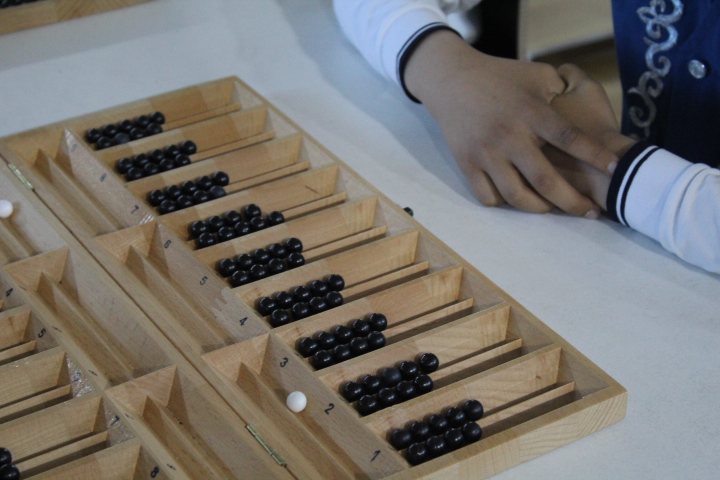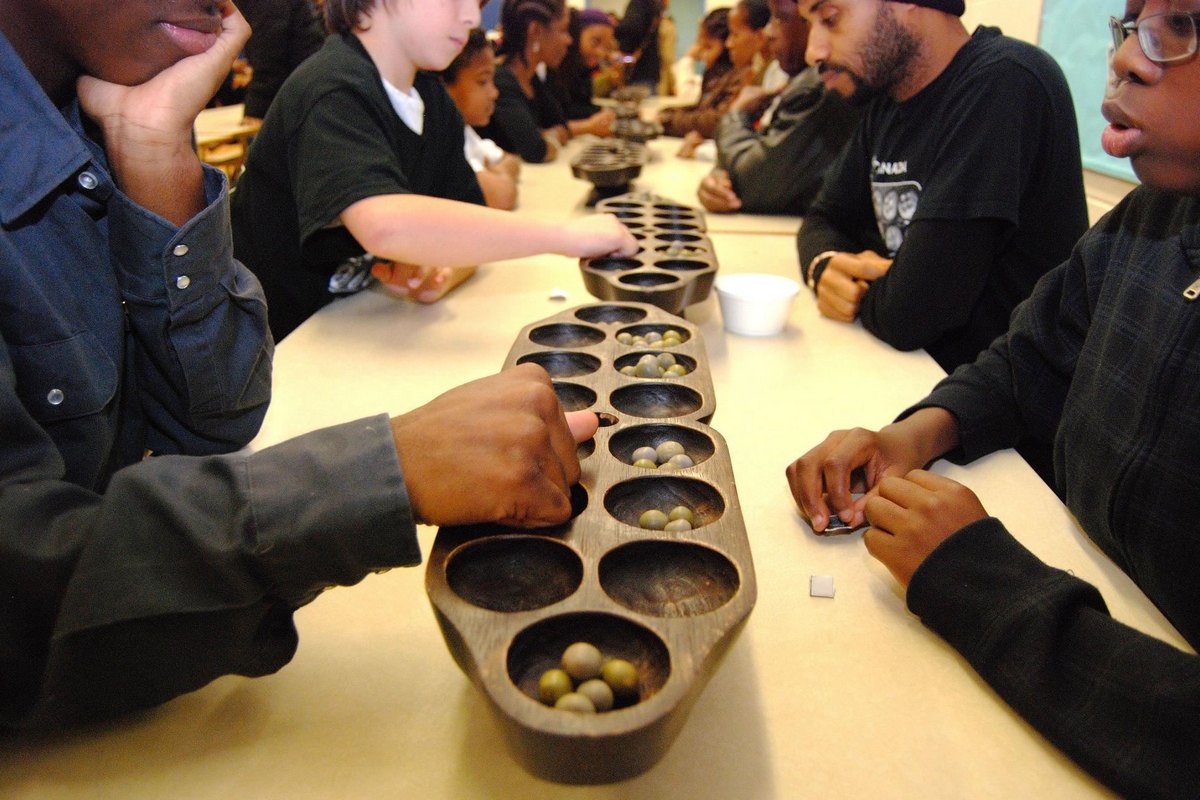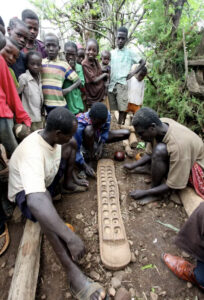ASTANA – The fifth World Nomad Games (WNG) in Astana showcased the cultural richness of nomadic peoples. This year, the event featured sports such as mas-wrestling – a national sport of Yakutia, oware – an intellectual game from African cultures, and mangala – an intellectual game from Turkiye.

Togyzkumalak. Each player has nine sections called ‘otau’, 18 otaus in total. The board also has two larger rows on each player’s side called ‘kazan,’ which means cauldron. Photo credit: The Astana Times
Kaleb Mengesha and Hanna Teshome represented Ethiopia for the first time at the World Nomad Games in Astana. They participated in togyzkumalak, which, according to Ethiopian team member Mengesha, is similar to the Ethiopian national game gabata, also known as mancala.
African and Asian cultures have similar games. In West Africa, these include oware and awari; among Kazakhs and Kyrgyz, there is togyzkumalak; and in India, pallanguzhi and olinda keliya are popular.

Oware is an intellectual and strategic game of the peoples of West Africa. Two people play in this game. On the game board are six identical holes located in two rows, which together make up 12 small holes, and there are also accumulating large holes – storages into which players will collect stones. The game Oware is played with 48 balls. Photo credit: World Nomad Games
The rarest game in this family is the three-rowed gabata from Ethiopia and Somalia, while the most complex are the four-rowed bao and omweso from Central Africa. Despite the variety of names, rows, pits, and stones, the basic principles remain the same: players must occupy a pit that gives them the right to take stones from their opponent and ultimately collect more stones themselves.

A group of people playing Gabata, one of the oldest games in the world, known under various names across Africa and the Middle East. Photo credit: dreamstime.com
Gabata is one of the oldest games in the world, known under various names across Africa and the Middle East. It belongs to the Mancala family of games, where players move seeds or stones across pits on a board to capture as many as possible. The origins of gabata are lost in the depths of history, and it is believed to have originated in what is now Ethiopia.
Over time, the game spread across the continent and became an important part of cultural life in various African societies. Both togyzkumalak and gabata develop strategic thinking and logic and teach patience and respect for the opponent. These games testify that, despite geographical and cultural differences, they can serve as a bridge between continents and traditions.
The World Nomad Games were held in Astana on Sept. 7-13. It attracted more than 2,500 athletes from 89 countries. The Kyrgyz Republic will host the next World Nomad Games in 2026.
